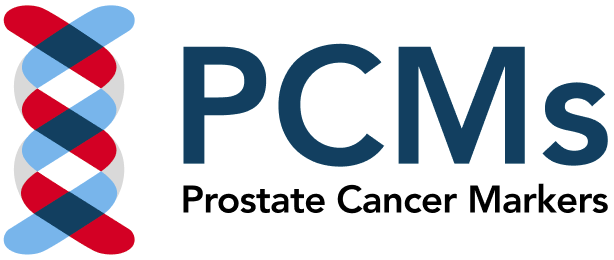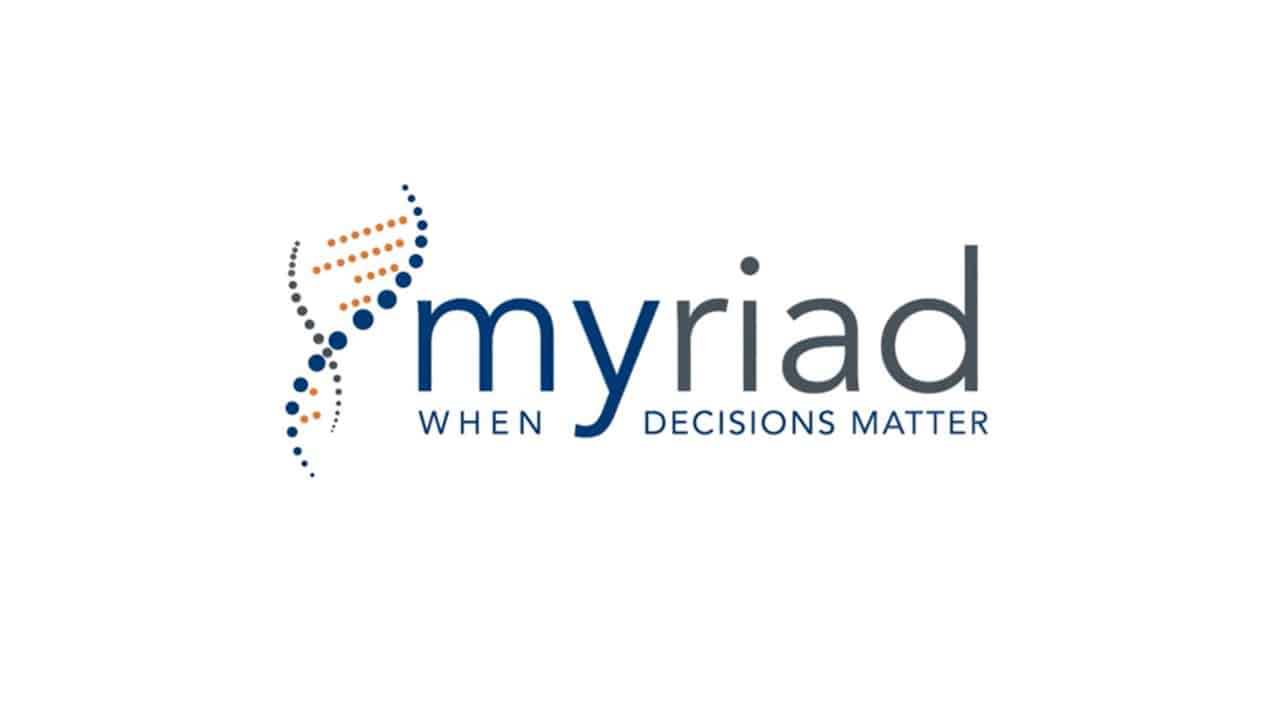What does the Myriad MyRisk test for?
Myriad MyRisk is a genetic test that screens for 48 genetic mutations associated with 11 hereditary cancers.
An increased risk of developing prostate cancer has been associated with 10 genetic mutations that are evaluated through this test. Myriad MyRisk uses a sample of saliva to screen a man’s genome for these mutations.
The results of the Myriad MyRisk test can help a patient and his healthcare provider determine the patient’s hereditary cancer risk, and subsequently develop a customized monitoring, treatment, or diagnostic plan based upon their results.
Myriad MyRisk Video
Learn more about the Myriad MyRisk Genetic test, which assesses a man’s risk for hereditary prostate cancer.
What do my Myriad MyRisk Test Results Mean?
The Myriad MyRisk Hereditary Cancer test can be effective in identifying a man’s elevated risk for eight hereditary cancers, including prostate cancer. See a sample Myriad MyRisk Genetic test report and learn more about how to interpret the report. Please note that results of the Myriad MyRisk test should always be discussed with a genetic counselor or healthcare provider first.
Myriad MyRisk FAQs
Below is an initial list of frequently asked questions about the Myriad MyRisk test.
The PSA test cannot differentiate between prostate cancer and non-cancerous (benign) conditions, such as benign prostatic hyperplasia (BPH). Men who receive a PSA level above 1.5 ng/ML should discuss additional biomarker testing with their healthcare providers prior to considering a prostate biopsy.
Prostate cancer biomarkers (PCMs) are molecules found in blood, tissue, or body fluids. PCMs are revolutionary new, non-invasive diagnostic tests that may help your healthcare provider decide if your prostate cancer is in fact low risk, if something more aggressive may be lurking in your prostate, or if there are hot spots in the prostate that may need to be re-evaluated upon biopsy. PCMs also can help you and your healthcare provider determine the most appropriate treatment for your cancer.
There are many factors that will make one prostate cancer marker test better suited for individual cases. Many times, individuals who have never had a biopsy or had low to intermediate grade prostate cancer (Gleason 3+3=6 or 3+4=7) diagnosed on a biopsy are well suited for blood or urine prostate cancer markers, whereas individuals who have persistently negative biopsies or a biopsy of intermediate to high grade cancer may benefit from tissue prostate cancer markers. Use this interactive questionnaire to see what tests may be right for you. Once you’ve completed the questionnaire, discuss the results with your healthcare provider. Also be sure to check out our Patient Journey section that may help you decide which test is right for you.
Although there are many factors that contribute to your healthcare provider’s decision to conduct a prostate biopsy, there are several urinary and blood based PCMs that may help guide you and your physician through the decision of conducting a prostate biopsy. These include:
Genetic tests also may be worth considering if you have a family history of prostate cancer, breast cancer, ovarian cancer or colorectal cancer. These genetic tests are recommended for men who are determined through genetic counseling to be at potential risk for hereditary cancer:
Men may be a candidate for the Myriad Genetics MyRisk test if they:
- have a personal history of any of the following: male breast cancer; metastatic prostate cancer; pancreatic, colon or rectal cancer
- have a family history of any of the following: breast cancer under age 50; ovarian, metastatic prostate, pancreatic cancers; colon, rectal or uterine cancer under age 50
To help determine if genetic testing is appropriate, healthcare providers will refer patients to a genetic counselor who helps determine their risk of hereditary cancer and whether testing is right for them and their family.
The Myriad Genetics MyRisk genetic test uses a saliva sample to analyze 48 genes. The test identifies elevated risk for 11 hereditary cancers. Test results for MyRisk are presented in the following fashion:
- Positive Result: A genetic mutation was found in one or more genes tested, putting the patient at increased risk for cancer.
- Elevated Result: No genetic mutation was found, but the patient is at elevated risk of cancer based on family history, personal risk factors or additional genetic markers.
- Negative Result: No genetic mutation was found in the genes tested. Risk for cancer depends on personal or family history.
- Variant of uncertain significance: A change in a gene was identified, but it is not yet known if this change is associated with increased cancer risk.
Patients’ healthcare providers or genetic counselors will review the results with the patients, answer any questions and recommend next steps. See a sample Myriad Genetics MyRisk test report and learn more about interpreting this report.
Learn More
Explore more information about the Myriad Genetics MyRisk test.


